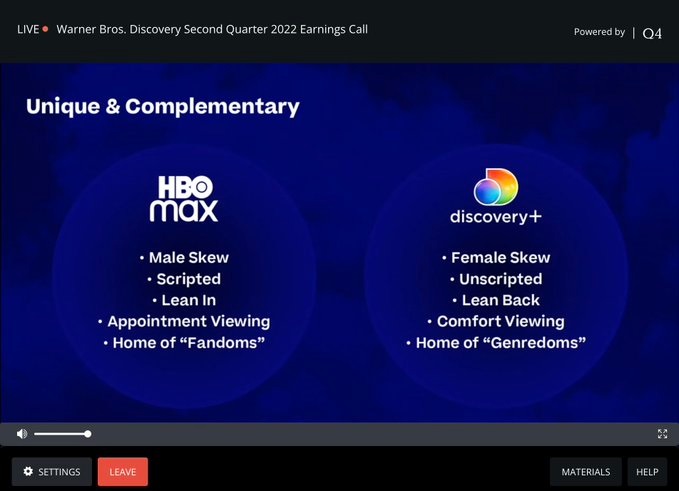Fantastical Truth

125. Why Do ‘False Prophets’ Predict Doom for Movie Theaters and Other Cultural Experiences?
Okay, we admit, in recent episodes we have sounded more negative about popular culture. That’s justified. At the same time, secular pundits can sound even more negative about decent pop-culture traditions. For example, just two years ago, some critics spoke like movie theaters and the whole cinematic experience were finished, passé, the end! They assumed we’d all be sitting at home in lockdown with our streaming services, watching made-for-TV-movies and shows. Today we instead see theater movies roaring back. Some studio CEOs are taking harder looks at the flaws of streaming. How can Christians evaluate that strange impulse to spy trends ahead of time and predict our culture’s future?
Subscribe to Lorehaven
articles • news • library • reviews • podcast • gifts • guild
Episode sponsors
- Blood Secrets by Morgan Busse from Enclave Publishing
- P. S. Patton’s science fiction novel The Withering
Explore the complete Podcast Sponsors page.
Concession stand
- In this episode we get to be more positive about popular culture! That’s okay.
- God gave people the ability to share amazing stories, including in theaters.
- Idolatry of movies is bad, but you can also enjoy movies for great reasons.
- Moreover, there’s something very wholesome about respecting The Past.
- In this episode, we inspect a weird issue when people tried to reject theaters.
- We’ll draw a lot from one example, HBO Max, because it’s now a special case.
1. Why did critics and corporations think theaters would shut down?
- In short, a lot of this started because of the 2020 lockdowns.
- Understandably, some studios panicked; their revenue is based on crowds.
- Meanwhile, some critics seemingly wanted to be first to predict doom.
- In a clickbait age (itself a descendant of “yellow journalism”), alarmism sells.
- More legitimately, if this had proved a terrible virus, crowd events might end.
- But they have not, and those who gambled opinions and money on it failed.
- Disney moved all its Pixar movies and a few Marvel movies to streaming.
- HBO Max tried day-and-date release for all its movies, even epics like Dune.
- In short, everyone was ready to say: Down with theaters! Up with streamers!
2. What happened when corporations gambled on longer lockdowns?
- In summary, the predictions and the resulting gambles seem to have failed.
- Arguably, big studios like Disney and Warner Bros. weakened their brands.
- “Event” movies rely on exclusivity in “special places.” Now they’re common.
- You’ve already got fandoms in dispute (see ep. 122). This stuff doesn’t help.
- Fans rebelled anyway, insisting on seeing Dune on big screens (see ep. 87).
- Many critics and fans then began recalling, “Oh, yeah, big screens are great.”
- Then came Spider-Man: No Way Home, which all but ended the narrative.
- Top Gun: Maverick destroyed any old nonsense about theaters being dead.
- But Pixar movies (Lightyear?) and superhero movies still feel less special.
- Meanwhile, the cultural hype over streaming seems to have leveled off.
- New Warner CEO David Zaslav is literally cancelling made-for-TV movies.
We will fully embrace theatrical. … We intend to maximize the value of that content through a broad distribution model that includes theatrical, streaming, linear cable, free-to-air, gaming, consumer products and experiences, and more, everywhere in the world.

- Zaslav’s emphasis on theaters and other traditions have drawn criticisms.
- One slide said HBO has “male skew,” “lean in” and “scripted” stories.
- But Discovery+ has “female skew,” “lean back” and “unscripted” stories!
- More pairings: “appointment viewing/fandoms” vs. “comfort/genredoms.”
- So at least one corporate boss is rejecting trends and embracing tradition.
3. Why do culture critics and corporations want to predict the future like this?
- There’s power in prediction. You gain cultural cachet as a “prophet.”
- We’ve used the word “gamble,” and that kind of risk is built into this game.
- It makes more sense for corporations to follow predictions by “the wise.”
- But “the wise” are often informed by less savory (religious?) agendas.
- For example, there’s a meme about “I will not live in a pod/eat the bugs.”
- It’s based on this stupid little media story about both of these weird trends.
- Related meme: these are efforts to impose some sort of future dystopia.
- But the fact is, some would-be taste-makers would be happy with exactly this.
- Our world has always been full of these bizarre little “futuristic” forecasts.
- Eliminating movie theaters and other cultural events fits right into it all.
- Two years ago, some folks literally thought we would “all” work from home.
- Whatever your views on the virus, this is dumb. No society can work that way.
- But apart from practicalities, these are predictions that oppose God’s word.
- God has made people to be in communities, to work outside, to gather.
- And our God has made people to join up for festivals, which include stories.
- “Predictions” won’t get far if they’re denying basic human nature like that.
- God is the only prophet; He predicts a world of happy, healthy community.
- This means human culture, in public and not locked away, will be eternal.
Various articles we cite
- 7 Ways This Uncanny AT&T Ad Predicted the Future in 1993
- Ben Affleck Predicted Netflix Streaming Model in 2003
- Fantastical Truth ep. 16. How Do We Discern Stories That Claim ‘Humans Are A Virus’ on the Earth?
- Tom Cruise Goes Undercover To See ‘Tenet’ At Movie Theater
- World Economic Forum on Twitter
- The Great Reset
- Welcome To 2030: I Own Nothing, Have No Privacy And Life Has Never Been Better
- Cricket-based snacks are surprisingly delicious
- Fact check: The World Economic Forum does not have a stated goal to have people own nothing by 2030
Com station
Autumn Grayson commented on ep. 124, about helping secular readers:
Whether or not Christian authors intend to write for a Christian audience, it might be good for them to remember that secular readers will probably discover and read their books anyway. Secular readers could have the book recommended by a Christian friend, or even accidentally stumble across it on Amazon. It’s important for Christian authors to be aware of that — not necessarily for the sake of conforming to secular expectations, but for the sake of thinking ahead and figuring out the most constructive way of handling any issues that can come up.
Meanwhile at Lorehaven
- We’re still making that article about best books for back-to-school readers.
- Join the Lorehaven Guild to engage our Book Quest for 100 Cupboards.
- And early announcement: next month’s Book Quest will be The Hobbit!
- We’re also planning a different sort of Saga for this September, Lord willing.
- Subscribe free at Lorehaven.com, and choose your own fantasy adventure.
Next on Fantastical Truth
Maybe you’ve heard about that one church that just did a “Christian” version of the musical “Hamilton,” and of course got sued by the creators and savaged by secular media. Or maybe last Easter you heard about the other church that did a “Christian” version of “Avengers,” just as they’ve adapted (or parodied?) other fantasy franchises. Christian cringe—most of us have grown up seeing the nasty “art” our brothers and sisters keep making for the sake of evangelism or entertainment. How can we be truthful about these controversial cringe attempts, while also being gracious in Christ and faithful to his beloved saints?






 Visit Podcast Website
Visit Podcast Website RSS Podcast Feed
RSS Podcast Feed Subscribe
Subscribe
 Add to MyCast
Add to MyCast